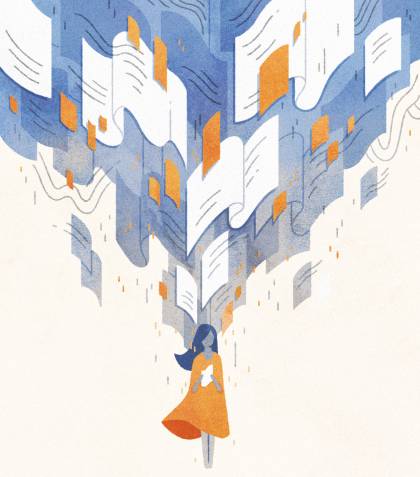When the COVID-19 crisis began in earnest, I started jotting down the major events and my impressions of them.
With only days between each announcement—and sometimes only hours—European governments around where I live in Switzerland began to shut down events and then issue stay-at-home orders. Large U.S. conferences I had on my calendar canceled. Global financial markets ricocheted within the trading day. Countries started to close borders.

Image credit: Illustration by Maggie Chiang
Everything happened so quickly that if I didn't take notes, I wouldn't remember. And I wanted to remember so that I could look back at the overall trajectory of the experience. I wanted to see if any patterns emerged. I wanted to see what we remember and how fast we forget.
Tossing my daily notes in weekly form on my personal website made sense as a storage and tracking solution. Typically, my blog doesn't take diary form—instead, I use it as a creative side project from my professional role as the CEO of the U.S.-based marketing firm FrogDog. My average day doesn't interest me enough to keep a diary—something still true even during COVID-19.
However, in creating these coronavirus diaries, I sensed a cosmic payback.
As an undergraduate student working with Nancy Struever in the JHU Humanities Center, I read the letters of Petrarch and Luther, the essays of Montaigne, and the marginal documentation and notes from lesser-known and unknown people in ledgers, books, and archives.
In teaching me intellectual history—the evolution of thoughts and ideas over time—Dr. Struever taught me the importance of the big writings and the small writings. She showed me that the latter often have just as much importance as the former when it comes to deepening our understanding.
Will any of the information we save on distant servers survive as well as the writings on more durable materials did?
I hope future historians have at least a handful of original scribblings to help them better understand and learn from the past. And though I didn't start it with any other goal than navel-gazing, I suppose my coronavirus diary could possibly live on somehow, somewhere.
If even one future scholar learns one small thing through my coronavirus diaries, then I did my part.
I'll have repaid some of my debt to the ancients—thank you, Petrarch; thank you, Luther; thank you, Montaigne; thank you so many other known and unknown writers and scribblers from times long before mine—and some of my debt to Dr. Struever and Johns Hopkins, who and which made me who I am in so many ways. And perhaps, in some small fashion, I'll have made a minor contribution to paying it all forward to the future.







